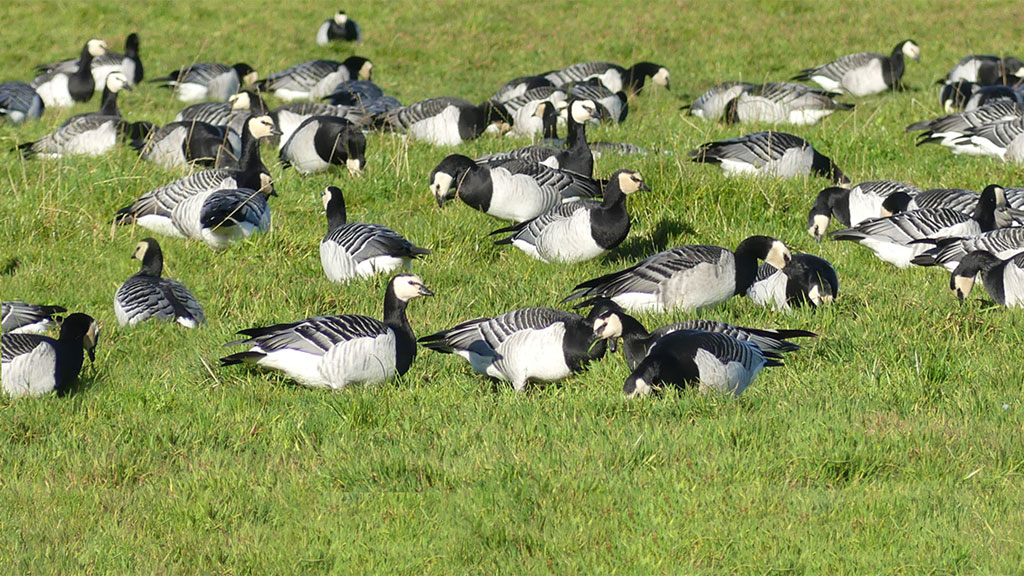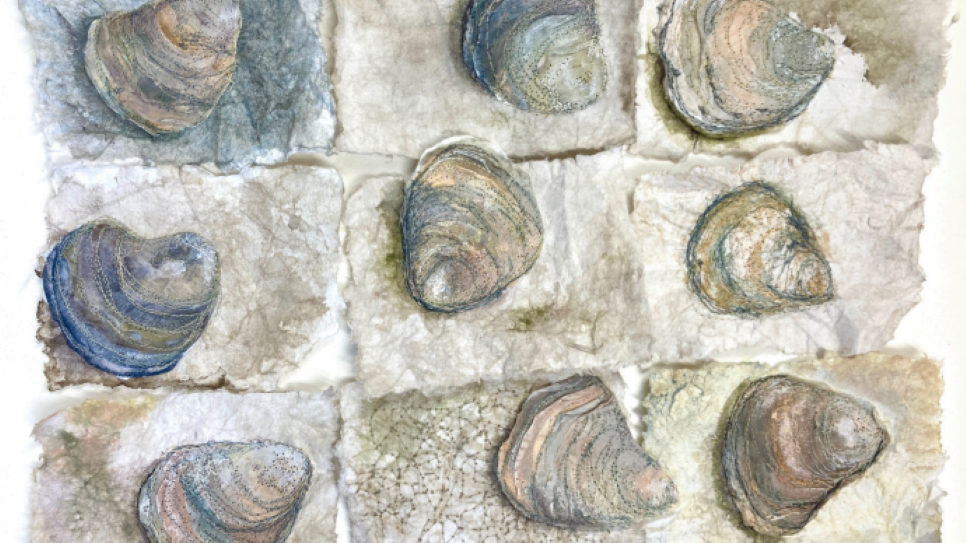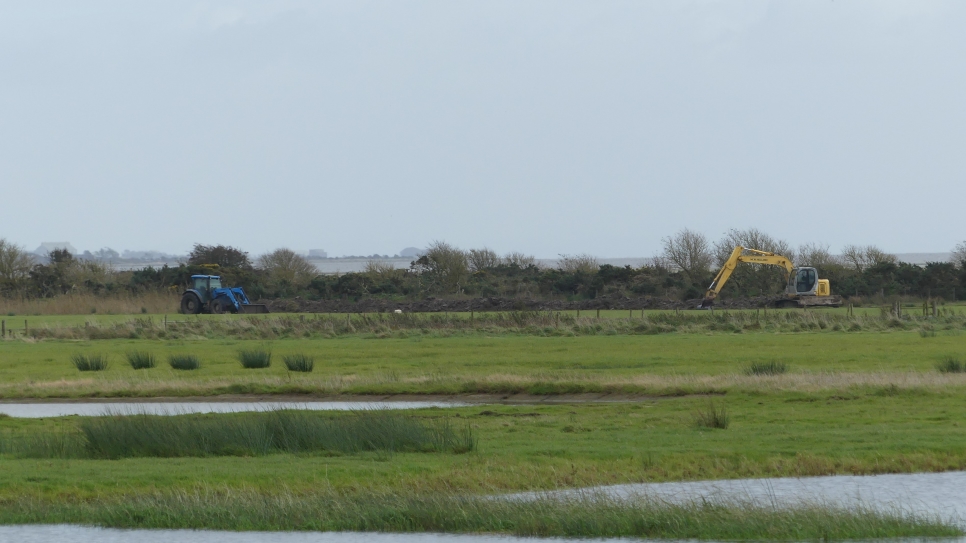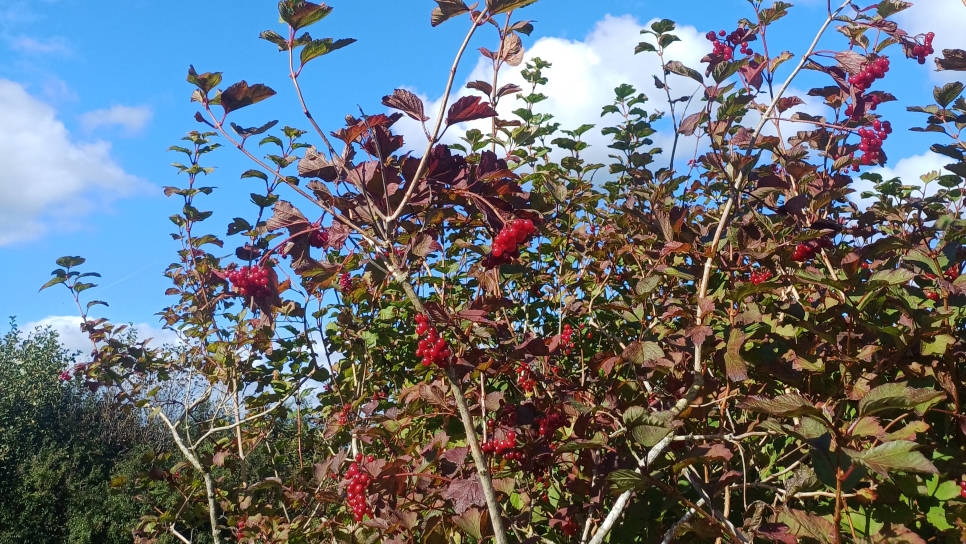Shearing of the sheep
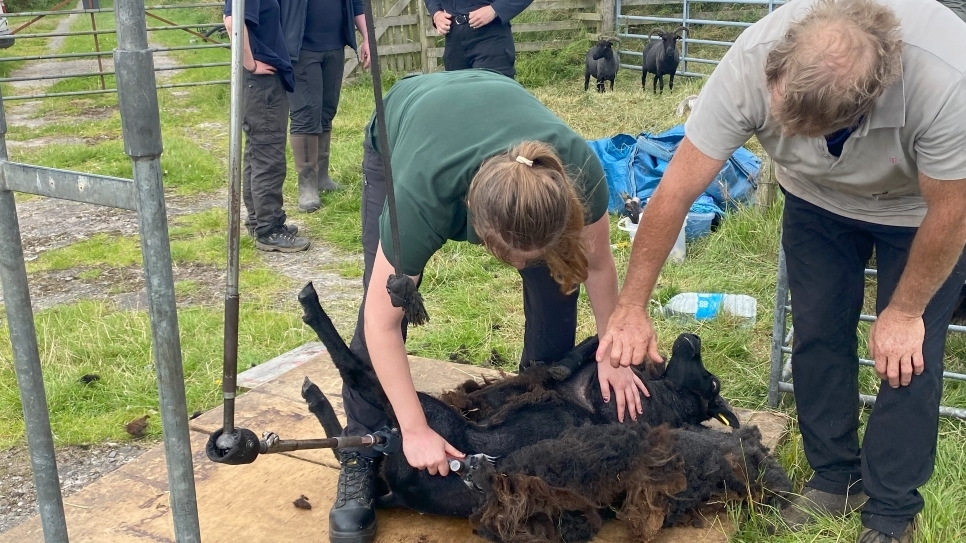
It’s that time of year again: when the reserve team wrangles up our hard working Hebridean sheep flock to shear off their thick wool coats. It was an unusually hot and sunny day which has been quite a rare occurrence this summer. The sheep were relaxing in their compartment as the team met with Bill the shepherd and the star of the show, Sammy the sheepdog. Bill began to draw up a plan to get our sheep rounded up from the field into the shearing pen before getting stuck into the action.
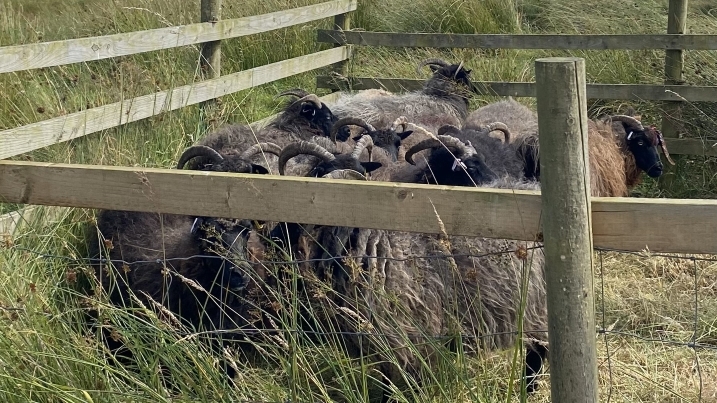
With whistles, calls and shouts, Bill and Sammy were herding up our sheep in the direction of the pen, with Sammy darting back and forth with supreme agility and intelligence. However our flock proved worthy opponents to the pair. Hebrideans are a notably skittish breed and they constantly broke away between the gaps in the rushes were Sammy was unable to keep an eye on them. So it was time to enlist a few more recruits: staff and volunteers acted as sheepdogs themselves by assisting the blocking off of escape routes and we eventually managed to get the flock into the pen as a team.
Bill set up his shearing gear and got to work, effortlessly pruning away wool of the sheep and a great crop of wool was collected. The wardens and the placements also got a go at shearing them, although we were not quite as efficient as Bill! One by one the sheep gathered around each other, comparing their fresh haircuts in the pen before being freed back into their compartment.
It's important to ensure that our sheep are well looked after as they are are essential to our management on the site. We rotate their grazing between the two small compartments at either side of the Saltcot Merse Observatory. These areas are some of our hotspots for natterjack toads. These endangered amphibians prefer to travel through short grass swards to access their breed ponds here, while using thicker rushes as protective cover from predators. As our sheep keep the grass nibbled close to the ground and leave the rush, they are the perfect management tool to help natterjacks thrive here and are considered our woolly natterjack wardens!
Words by Charlie McGrath Hayes
Images by Fiona Hinchcliffe
